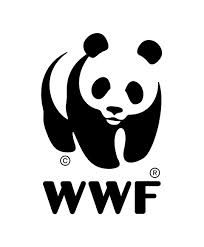World Wildlife Fund (WWF) Announces 2016 Russell E. Train Fellowship Winners
Recognizing 35 rising conservation leaders in Africa, Asia and Latin America
WASHINGTON, D.C., September 13, 2016 /3BL Media/ -- Today, World Wildlife Fund (WWF) is pleased to announce the recipients of the 2016 Russell E. Train Fellowship. As part of the Russell E. Train Education for Nature Program (EFN), Train Fellowships provide funding to rising conservation leaders to pursue graduate degree studies in conservation-related fields anywhere in the world and conduct research in their home countries.
From researching the illegal trafficking of wildlife products to discovering a new species of frog, this year’s 35 recipients from 14 countries were selected through a competitive, merit-based process from a pool of more than 350 applicants.
“EFN is one of the largest fellowship programs that exclusively supports conservationists—promising women and men around the world who, because of EFN, are able to pursue education and in turn lead influential change in their home countries,” says Andrea Santy, Director of the Russell E. Train Education for Nature Program. “This year we are proud to support one of our largest cohorts of Train Fellows. Many of them have already had profound impacts in their communities, and we are looking forward to seeing them strengthen conservation capacity in the years ahead.”
Started in 1994 to honor the late Russell E. Train, founder, president, and chairman of the board of WWF, EFN upholds Mr. Train’s vision of putting ownership of natural resources in local hands in the work it does every day. Each year, EFN supports committed conservationists from target countries to receive financial support for their advanced studies and field research. Applicants may apply to attend any university around the world and must return to their home countries to work in conservation for at least two years after completing their degree. Over the past two decades, EFN has supported more than 2,300 individuals from Africa, Asia and Latin America to pursue graduate degrees in conservation.
Each year, Train Fellowships align support with one of WWF’s six goals: wildlife, freshwater, oceans, forests, climate, and food. This year’s cohort focused on supporting research that:
- Reduces the loss of WWF focal species across Africa and Asia through wildlife science and management
- Builds capacity for fresh water conservation throughout Latin America and Asia, focusing on habitat protection, water scarcity and water stewardship
- Protects key ecosystems in Mozambique and Myanmar
In 2017, Train Fellowships will focus on:
- Climate
- Food
- Mozambique and Myanmar.
WWF is proud to announce the 2016 Train Fellows:
- Kinley Choden (Bhutan): Master’s in Epidemiology, Kasetsart University, Thailand
- Pamela Liliana Claure Gutierrez (Bolivia): Master’s in Water Science and Engineering, UNESCO IHE Institute for Water, Netherlands
- Tashi Dhendup (Bhutan): Master’s in Wildlife Biology, University of Montana, USA
- Tshering Dorji (Bhutan): PhD in Freshwater Conservation, Griffith University, Australia
- Harith Omar Morgandinho Farooq (Mozambique): PhD in Biogeography, Universidade de Aveiro, Portugal and University of Gothenburg, Sweden
- Ndeinekela Emilia Haimbili (Namibia): PhD in Restoration Ecology, University of Western Australia, Australia
- Vilanath Koumphon (Laos): Master’s in Forestry, National University of Laos, Laos
- Jewel Anita Liddell (Guyana): PhD in Biology, Royal Holloway, University of London, UK
- Hussein Mohamed Luswaga (Tanzania): PhD in Conservation Livelihoods, Justus Liebig University, Germany
- Aires Mbanze (Mozambique): PhD in Economic Valuation of Ecosystem Services, Universidade Nova de Lisboa, Portugal
- Yasmin Morales (Guatemala): PhD in Interdisciplinary Ecology with concentration in Fisheries and Aquatic Sciences, Texas A&M, USA
- Tutilo Mudumba (Uganda): PhD in Fisheries and Wildlife, Michigan State University, USA
- Nicholas Muhesi (Uganda): Master’s in Natural Resource Management, Mountains of the Moon University, Uganda
- Caroline Mwebaze (Uganda): Master’s in Environment and Natural Resources Management, Makerere University, Uganda
- Trang Nguyen (Vietnam): PhD in Biodiversity Management, University of Kent, UK
- Henry Abi Nibam (Cameroon): PhD in Biodiversity and Evolutionary Biology, University of Valencia, Spain
- Kyaw Moe Oo (Myanmar): Professional Certificate in Aquaculture, Asian Institute of Technology, Thailand
- Kevin Wafula Opondo (Kenya): Master’s in Conservation Biology, University of Nairobi, Kenya
- Jagadish Parajuli (Nepal): PhD in Sustainability, Arizona State University, USA
- Shambhu Paudel (Nepal): PhD in Conservation Biology, University of Arizona, USA
- Koudkeo Phommachan (Laos): Master’s in Biology, National University of Laos, Laos
- Xayyasith Phommachanthone (Laos): Master’s in Biology, National University of Laos, Laos
- Chaikeo Saengsulin (Laos): Master’s in Biology, University of Laos, Laos
- Kamdet Sayyavong (Laos): Master’s in Forestry, National University of Laos, Laos
- Sengvilay Seateun (Laos): PhD in Zoology, Kasetsart University, Thailand
- Sandeep Shrestha (Nepal): PhD Conservation Biology, Kathmandu University, Nepal and University of Rhode Island, USA
- Muri Soares (Mozambique): Master’s in Conservation and Biodiversity Management, Universidade Eduardo Mondlane, Mozambique
- Pyae Sone Soe (Myanmar): Master’s in Agricultural Science, Kyoto University, Japan
- Keooudone Souvannakhoummane (Laos): Master’s in Biology, National University of Laos, Laos
- Hoang Thach (Vietnam): PhD in Human Ecology, Rutgers University, USA
- Nguyen Van Thanh (Vietnam): PhD in Conservation Biology, University of Potsdam, Germany
- Thin Thwe Thwe (Myanmar): PhD in River Basin Management, Kyoto University, Japan
- Segundo Bolier Torres Navarrete (Ecuador): PhD in Economy of Natural Resources, Technische Universität Munchen, Germany
- Houan Vorasane (Laos): Master’s in Forestry, National University of Laos, Laos
- Mercy Njeri Waithira (Kenya): Master’s in Conservation Biology, University of Kent, UK
For more information about EFN or to apply for a 2017 Train Fellowship, visit: http://www.worldwildlife.org/projects/russell-e-train-fellowships

